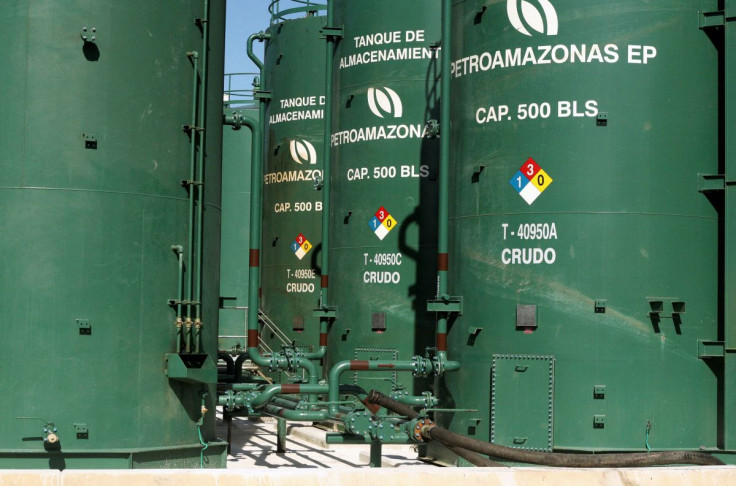Ecuador Indigenous Leaders, Gov't In Talks To Hammer Out Fuel Price Deal

Talks between Ecuadorean indigenous groups and the government continued late on Monday in an effort to secure a deal on demands for deeper cuts to gasoline prices and tighter limits on oil and mining development after two weeks of protests.
The face-to-face meeting came as President Guillermo Lasso's government seeks to end the sometimes-violent demonstrations, which have hit the country's weakened economy and threatened its oil production.
Lasso late on Sunday announced a 10-cent per gallon cut to gasoline and diesel prices, the latest concession to try to quell the protests, which began on June 13.
At least seven people have died in connection with the marches and the country's oil output has been halved, with the energy ministry saying a production halt is possible by Tuesday if road blocks and takeovers of oil wells continue.
Lasso, whose adversarial relationship with the national assembly has worsened during the protests, has also withdrawn security measures and announced subsidized fertilizers and debt forgiveness.
Indigenous groups led by organisation CONAIE said early on Monday that Lasso's reductions, which put so-called 'gasoline extra' at $2.45 per gallon and diesel at $1.80 per gallon, were not enough, but they agreed to meet with government representatives.
CONAIE originally demanded gasoline extra prices be cut to $2.10 per gallon and diesel to $1.50 per gallon. It also wants the government to limit expansion of oil and mining development.
The government - which has said the fuel price cut and other concessions will cost some $600 million - cannot reduce prices further, Government Minister Francisco Jimenez said during the meeting, but is willing to consider subsidies for specific groups.
The government is also willing to discuss changes to oil and mining policies, Jimenez said.
Lasso has pinned promises to boost the economy and create jobs on an increase in investment in oil and mining, despite objections from indigenous groups and environmentalists.
"We see there is little will on the substantive issues," CONAIE leader Leonidas Iza said.
Having to cut oil production amid globally high prices "is a crime," Italo Cedeno, the manager of state-run oil company Petroecuador, told a local television station.
Residents of Quito have complained of shortages of domestic gas and food. Other cities have also reported shortages of fuel and medical supplies for hospitals.
The public oil sector, private producers of flowers and dairy products, tourism and other businesses have lost about $500 million, the government has said.
CONAIE tallies five protester deaths, while the government says three civilians died during marches, two more were killed in accidents and two died in ambulances delayed by blockades.
Lawmakers are set to continue debate on Tuesday on an effort to remove Lasso from office, though it appears opposition groups lack the necessary support for the measure to succeed.
© Copyright Thomson Reuters 2024. All rights reserved.







